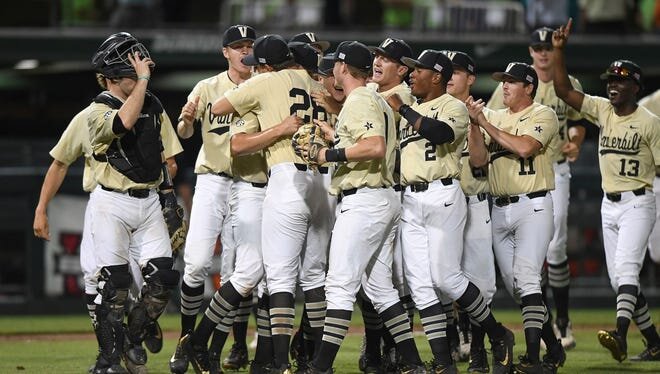Tim Corbin was raised in the northeast. A tough, north-easterner to his core he played NCAA Division III baseball at Ohio Wesleyan University. While in college he was enamored with the coaching profession and knew he wanted to make it his path. After graduating from Ohio Wesleyan, he was able to land a graduate assistant position at Ohio State University, coaching and going to school full-time. One of his graduate cohort classmates was a young, intense football coach named Urban Meyer.While young assistants, the two shared a passion for their sport and for being diligent, hard workers.
After spending time “paying his dues” as a graduate assistant, Corbin moved to the south where he was able to get a job as a resident director/assistant coach at Wofford University. Corbin assisted the baseball operations while living in the dorms for free and eating in the cafeteria on a school issued meal plan. All perks of his compensation of course. After one year as an assistant at Wofford, Corbin was afforded the opportunity to lead a program of his own. He became the head coach for a small NAIA program in South Carolina at Presbyterian College just three years removed from his own college playing days.
At Presbyterian, Corbin helped lead the program from borderline high school status into a regional contender. As a small college program, the operational budget was thin. While other programs could afford to send multiple coaches out to recruit in rented cars and hotel rooms. Corbin did most of the recruiting himself. On more than one occasion Corbin would drive to big tournaments in search of players who he could build his program around on his own dime. He made a habit out of sleeping in his car while on the road. He was doing whatever it took to control what he could control, and pour into the development of his program.
After a few years of recruiting on the circuit tirelessly many began to take notice in Tim Corbin’s commitment to the process and tireless resolve to work. Another northeasterner was leading a South Carolina powerhouse program just down the road from Presbyterian. Jack Leggett invited Corbin to join his staff with the Clemson Tigers baseball team. After sizing Corbin up and recognizing all he was accomplishing on relatively no budget, Jack Leggett began to wonder what Corbin could do with a little bit of resources behind his drive. He wasted no time in hiring him. Corbin joined the hall of fame coach in Clemson and together they led the Clemson Tigers to four NCAA College World Series berths.
Corbin remained at Clemson for nine years before deciding to take on a new challenge of his own. As the associate head coach at one of the top programs in the country, Corbin did not have to rush to become an NCAA Division I head coach. He could be selective should he choose to. Which is what made his decision to take over a struggling program so interesting.
From 1979 to 2002, the Vanderbilt University Commodores baseball team was only able to earn one NCAA Division I tournament berth. Despite playing in the nation’s top college baseball conference, the Vanderbilt baseball team went through decades of mediocrity. In 2002, the year before Tim Corbin took over, Vanderbilt had a 7-21 record in conference play. The Commodores resided in the basement of the conference and were far from being a regional or national contender. But while many in the sporting world saw a dormant program, Corbin saw a sleeping giant. With a prestigious academic institution in the heart of Nashville, Corbin felt Vanderbilt could become a destination program for the nation’s top talent. He made this observation when Vanderbilt was one of the worst programs in the region.
In his first year at the helm, Tim Corbin led Vanderbilt to a 27-28 record. It would be the only losing season in his 18 years in Nashville. After one losing season, Vanderbilt has been steadily built into one of the most dominant college dynasties in the country in any sport. The Vanderbilt Commodores have reached the NCAA postseason for 14 consecutive seasons. Since taking over in 2003, under Corbin Vanderbilt has produced 48 NCAA All-Americans, and has been a development factory for future MLB draft picks. In total, Vanderbilt has produced 24 major league players under Tim Corbin, with some of the top stars in the league all alums of Vanderbilt - Sonny Gray, Dansby Swanson, David Price, Walker Buehler among many others. In 2019 they set an SEC record with 13 MLB draft picks while on their way to a national championship.
As a program that was once dormant. Corbin has led Vanderbilt to four college world series berths including two national titles (2014 & 2019). At Vanderbilt his record is an impressive 753-359-1. The work that Tim Corbin has done at Vanderbilt University is a remarkable example of the residual effect of transformational leadership at work. The compound effect of decades of brick laying. Among all of the exceptional blueprints for program building, three characteristics stand out the most in Vanderbilt Baseball led by Tim Corbin.
A Trailblazer DNA
A leader must not only be able to recognize unrealized potential when they see it - but they must have the courage to act on what they see. As an assistant coach at Clemson, Tim Corbin could have likely made a jump to any of the already established national powers in college baseball in due time. However, had he jumped to the already established entities, he would have forfeited the pleasure of blazing a new trail. Tim Corbin embodies a trailblazer more than any other leader in college athletics. A trail blazer forges the unknown path, they have a vision for what can be and have the confidence and security to face the results if it does not go the way they envision.
Before draft picks were a regular occurrence at Vanderbilt, Tim Corbin approached the president of Vanderbilt and requested funds to create a pro player locker room. Corbin had a vision of the top alums of Vandebrilt, returning to Nashville each offseason to make the college their offseason home. At the time this vision was laughable, Vanderbilt was not a top power. What unfolded over the next decade and-a-half was exactly what Corbin envisioned. Top MLB talent, and alums of the Vanderbilt program have returned to campus and are regulars around the program. David Price, Sonny Gray, Walker Buehler, Curt Casali, and others train on site and serve as resources to current players. While forging a trail at Vanderbilt, Tim Corbin was creating an environment that subliminally breathed belief into the many players who showed up as freshman. In the same way this dormant program could become a national power, an undersized freshman could become a first round draft pick. It is the power of a trailblazer DNA imbedded into the culture of Vanderbilt baseball.
A Character Driven Atmosphere
Along with a pro-player locker room on site. One of the other projects that has become synonymous with the Vanderbilt baseball brand is the use of a full classroom. In a similar trip to the president’s office, Corbin layed out the plan for a full size classroom to be installed at the facility.
First and foremost, leaders are teachers, and Tim Corbin is a master teacher in not only baseball fundamentals and tactics but also in teaching character and leadership to men between the ages of 18 and 23 years old. Vanderbilt begins every training session in the classroom, fully focused and locked in on 30 minute sessions. Some sessions have a lot to do with baseball, some sessions have zero to do with baseball and a lot to do with life off the field. It is in this atmosphere, Corbin uses the game of baseball as a vehicle to build men for life. To teach traits that will outlive their playing careers. The field may be used to develop championship skills, but the classroom has been used to develop championship character. Both are essential to developing winners,.
A Connected Team Culture
Top brand name jerseys wear off. Flash and facilities are exciting for a period of time but if we want to create a lasting impact it must come in the form of relationships. A group of people in the same spot, wearing the same uniform does not make a team. A group of people with love, trust, and a common objective is a team. At Vanderbilt, Tim Corbin, with the precision of a surgeon carefully, and methodically designed an atmosphere of a connected team culture. Alums of the Vanderbilt baseball program have routinely donated back to the program in fundraising initiatives. Wins and losses may reflect how successful a coach is on the field. Fundraising is a reflection of how successful a coach is off the field. People will give back to environments that have greatly impacted their life.
Vanderbilt baseball under Tim Corbin has not only impacted the college baseball landscape, but has also impacted the lives of many men through transformational relationships, a connected team culture, and an elite training environment. All components of a vision Corbin had long before arriving in Nashville. The success under Corbin at Vanderbilt begs the question to be asked:
Is it possible to be truly championship caliber without transformational leadership?
Stay The Course,
JB
Book of the week: You Win In The Locker Room First, Jon Gordon
Podcast episode of the week: ABCA Dugout Chatter, Tim Corbin
Article of the week: The Not So Secret Hangout of MLB's Tightest Fraternity
Thank you for visiting Staythecourseleaders.com. Be sure to check out my growing list of resources for leadership development below. Did someone forward you this email? Interested in signing up for a free weekly newsletter studying leadership, faith, culture, and the power of teams? Subscribe below.


